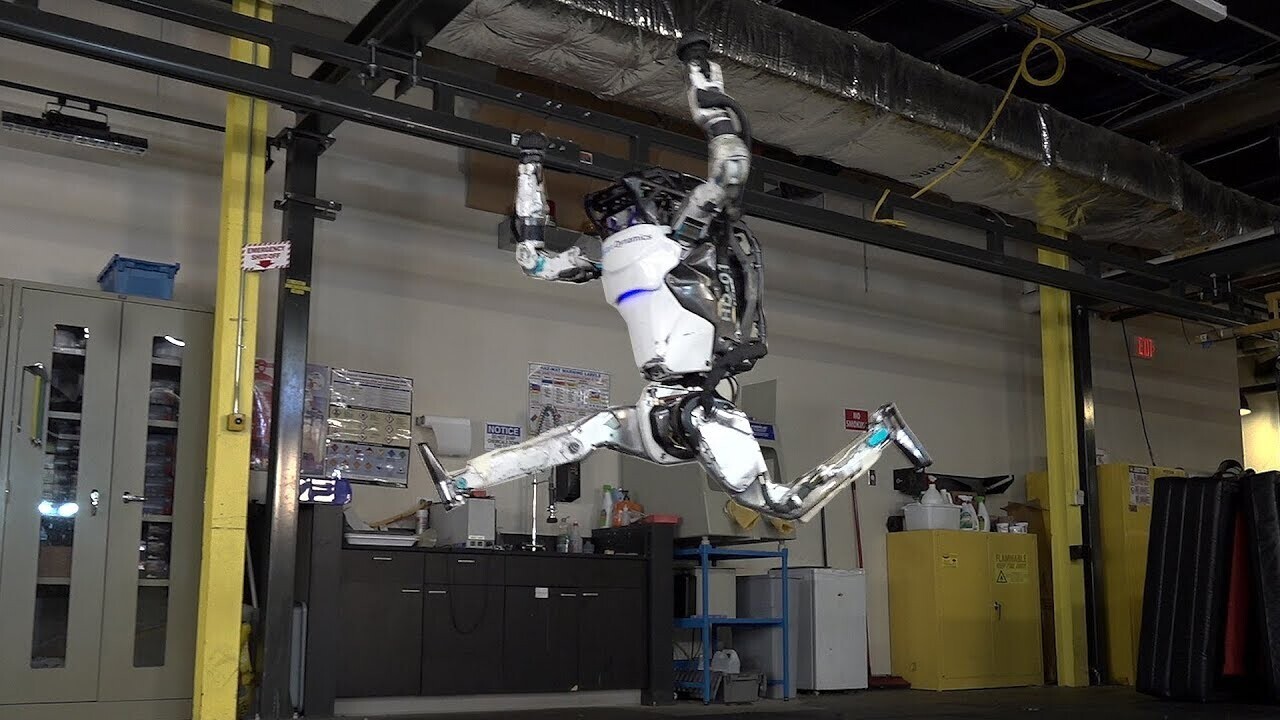Oct 5, 2021 | algo, justice & equality, networking
 Estherina Bewintara, a 29-year-old mother and designer in Jakarta, normally processes orders for her online furniture shop once her baby is asleep, typically between 10 p.m. and 3 a.m. But on Monday night, as she was coordinating a stock update over a WhatsApp call, she noticed something was wrong.
Estherina Bewintara, a 29-year-old mother and designer in Jakarta, normally processes orders for her online furniture shop once her baby is asleep, typically between 10 p.m. and 3 a.m. But on Monday night, as she was coordinating a stock update over a WhatsApp call, she noticed something was wrong.
Source: How the Facebook outage crippled businesses and communication around the world
Oct 5, 2021 | algo, games & graphics, trends
 In recent months you may have heard about something called the metaverse. Maybe you’ve read that the metaverse is going to replace the internet. Maybe we’re all supposed to live there. Maybe Facebook (or Epic, or Roblox , or dozens of smaller companies) is trying to take it over.
In recent months you may have heard about something called the metaverse. Maybe you’ve read that the metaverse is going to replace the internet. Maybe we’re all supposed to live there. Maybe Facebook (or Epic, or Roblox , or dozens of smaller companies) is trying to take it over.
Source: What is the metaverse, and do I have to care?
Oct 5, 2021 | algo, networking, trends

Too much has been lost already. The glue that holds humanity’s knowledge together is coming undone.
Source: The Internet Is Rotting
Sep 30, 2021 | algo, trends
 Google is going to begin flexing its ability to recognize constellations of related topics using machine learning and present them to you in an organized way. A coming redesign to Google search will begin showing “Things to know” boxes that send you off to different subtopics. When there’s a section of a video that’s relevant to the general topic — even when the video as a whole is not — it will send you there. Shopping results will begin to show inventory available in nearby stores, and even clothing in different styles associated with your search. will ask more detailed and context-rich questions.
Google is going to begin flexing its ability to recognize constellations of related topics using machine learning and present them to you in an organized way. A coming redesign to Google search will begin showing “Things to know” boxes that send you off to different subtopics. When there’s a section of a video that’s relevant to the general topic — even when the video as a whole is not — it will send you there. Shopping results will begin to show inventory available in nearby stores, and even clothing in different styles associated with your search. will ask more detailed and context-rich questions.
Source: Google search’s next phase: context is king
Sep 29, 2021 | algo, networking
 Insiders say that marketing missteps and duplicated development processes meant IBM Cloud was doomed from the start, and eight years after it attempted to launch its own public cloud the future of its effort is in dire straits.
Insiders say that marketing missteps and duplicated development processes meant IBM Cloud was doomed from the start, and eight years after it attempted to launch its own public cloud the future of its effort is in dire straits.
Source: How IBM lost the cloud
Aug 28, 2021 | algo, video
 The same tricks that nearly destroyed online journalism now threaten to take over the streaming service.
The same tricks that nearly destroyed online journalism now threaten to take over the streaming service.
Source: Netflix’s Latest Innovation Could Be Its Ruin
Aug 27, 2021 | algo, networking

China is not done with curbing the influence local internet services have assumed in the world’s most populous market. Following a widening series of regulatory crackdowns in recent months, the nation on Friday issued draft guidelines on regulating the algorithms firms run to make recommendations to users. In a 30-point draft guideline published on Friday, the Cyberspace Administration of China (CAC) proposed forbidding companies from deploying algorithms that “encourage addiction or high consumption” and endanger national security or disrupt the public order.
Source: China proposes strict control of algorithms – TechCrunch
Aug 27, 2021 | algo, games & graphics, networking
 Part Pokémon Go, part NFT economy, the online game has replaced regular jobs for many players
Part Pokémon Go, part NFT economy, the online game has replaced regular jobs for many players
Source: Workers in the Global South are making a living playing the blockchain game Axie Infinity
Aug 25, 2021 | algo, justice & equality, networking

For many Afghans, this week has laid bare the worst-case scenario for a country running on legacy financial rails: A nationwide cash shortage, closed borders, a plunging currency, and rapidly rising prices of basic goods. In some ways, it’s a perfect test case for the usefulness of bitcoin and other cryptocurrencies. CNBC spoke with several Afghans who are using crypto to learn how they got into it, how it’s helping them, and barriers to further adoption.
Source: Inside Afghanistan’s cryptocurrency underground as the country plunges into turmoil
Aug 25, 2021 | algo, trends
 Boston Dynamics is known for the flashy videos of its robots doing impressive feats. Among Boston Dynamics’ creations is Atlas, a humanoid robot that has become popular for showing unrivaled ability in jumping over obstacles, doing backflips, and dancing.
Boston Dynamics is known for the flashy videos of its robots doing impressive feats. Among Boston Dynamics’ creations is Atlas, a humanoid robot that has become popular for showing unrivaled ability in jumping over obstacles, doing backflips, and dancing.
Source: Inside Boston Dynamics’ project to create humanoid robots
Aug 25, 2021 | algo, trends

China’s system is not even the most advanced CBDC in the world. Both Cambodia, with the “Bakong”, and the Bahamas, with the “Sand Dollar”, have more comprehensive CBDCs rolled out at a wider scale, according to a report by accounting firm PwC. China, however, is the first major advanced economy to start implementing a digital currency at any scale, and its ambitions seem to far exceed those of the established players in the field.
Source: China’s digital yuan is a warning to the world
Aug 25, 2021 | algo

Is it possible to establish the authenticity of a work of art amid conflicting expert opinions and incomplete evidence? Scientific measurements can establish a painting’s age and reveal subsurface detail, but they can’t directly identify its creator. That requires subtle judgments of style and technique, which, it might seem, only art experts could provide. In fact, this task is well suited to computer analysis, particularly by neural networks—computer algorithms that excel at examining patterns. Convolutional neural networks (CNNs), designed to analyze images, have been used to good advantage in a wide range of applications, including recognizing faces and helping to pilot self-driving cars. Why not also use them to authenticate art?
Source: This AI Can Spot an Art Forgery
Aug 20, 2021 | algo, games & graphics, networking, trends, video
 “Facebook launches VR remote work app, calling it a step to the ‘metaverse’” — NBC News headline, Aug. 19, 2021
“Facebook launches VR remote work app, calling it a step to the ‘metaverse’” — NBC News headline, Aug. 19, 2021
“Do you ever think …” a voice said from what sounded like Greg’s right. Greg turned his cartoon avatar to look in the direction of the voice, “ … that maybe the Metaverse is a stupid waste of everyone’s time?
Source: Opinion | Do you ever think … that maybe the virtual-reality office is stupid?
Aug 19, 2021 | algo, networking

Distributed Denial of Secrets, or DDoSecrets, had been a thorn in the side of secretive governments, corrupt corporations, and powerful law firms since its founding in late 2018. In June 2020, in a release known as BlueLeaks, the group published 269 gigabytes of law enforcement data, which exposed police malfeasance and surveillance overreach across the United States. DDoSecrets also published incriminating records from overseas tax shelters, from the social media site Gab, and from a Christian crowdfunding site often used by the far right. The group has affected autocrats as well, exposing the Russian government’s plans in Ukraine and mapping out the Myanmar junta’s business dealings.
Source: The New WikiLeaks
Aug 17, 2021 | algo, networking
 Bluesky , the Twitter-funded effort to create a decentralized social network standard , has finally found a project lead — the creator of Happening, Jay Graber . Bluesky and Graber have also begun hiring for the project’s first developers, meaning the slowly gestating project might finally become a bit less “blue sky” and a bit more real.
Bluesky , the Twitter-funded effort to create a decentralized social network standard , has finally found a project lead — the creator of Happening, Jay Graber . Bluesky and Graber have also begun hiring for the project’s first developers, meaning the slowly gestating project might finally become a bit less “blue sky” and a bit more real.
Source: Twitter’s decentralized social network project finally has a leader
Aug 16, 2021 | algo, networking
 Popular dating app Tinder announced on Monday that the new “ID Verification” feature will soon be available to all users around the world. As the name suggests, this option will let users ensure that their profile on the social network is authentic and from a real person.
Popular dating app Tinder announced on Monday that the new “ID Verification” feature will soon be available to all users around the world. As the name suggests, this option will let users ensure that their profile on the social network is authentic and from a real person.
Source: Tinder will soon roll out ID Verification to ensure profile authenticity
Aug 10, 2021 | algo, networking

Hello World Buckle your seatbelts, because a trio of researchers just published an unusual research paper that claims that blockchain technology — the decentralized ledgers behind cryptocurrencies like Bitcoin — fit at least some criteria biologists use to define life.
Source: Scientists Say Blockchains “Fit Some Definitions of Life”
Aug 10, 2021 | algo, networking, video
 The search giant announces a number of protections for people under 18, including making YouTube video uploads private by default.
The search giant announces a number of protections for people under 18, including making YouTube video uploads private by default.
Source: Google will let minors request to have their pictures removed from image search – CNET
Aug 9, 2021 | algo, justice & equality, networking
 Colombia-based call center workers who provide outsourced customer service to some of the nation’s largest companies are being pressured to sign a contract that lets their employer install cameras in their homes to monitor work performance, an NBC News investigation has found.
Colombia-based call center workers who provide outsourced customer service to some of the nation’s largest companies are being pressured to sign a contract that lets their employer install cameras in their homes to monitor work performance, an NBC News investigation has found.
Source: Big Tech call center workers face pressure to accept home surveillance
Aug 8, 2021 | algo, networking, video

Earlier this year, videos of Tom Cruise started popping up on TikTok of the actor doing some surprisingly un-Tom-Cruise-like stuff: goofing around in an upscale men’s clothing store; showing off a coin trick; growling playfully during a short rendition of Dave Matthews Band’s “Crash Into Me.”
Source: A look at Metaphysic, a company which uses deepfake tech to create ads and restore old film; its founder went viral on TikTok for deepfaking Tom Cruise (Rachel Metz/CNN)
Estherina Bewintara, a 29-year-old mother and designer in Jakarta, normally processes orders for her online furniture shop once her baby is asleep, typically between 10 p.m. and 3 a.m. But on Monday night, as she was coordinating a stock update over a WhatsApp call, she noticed something was wrong.
 In recent months you may have heard about something called the metaverse. Maybe you’ve read that the metaverse is going to replace the internet. Maybe we’re all supposed to live there. Maybe Facebook (or Epic, or Roblox , or dozens of smaller companies) is trying to take it over.
In recent months you may have heard about something called the metaverse. Maybe you’ve read that the metaverse is going to replace the internet. Maybe we’re all supposed to live there. Maybe Facebook (or Epic, or Roblox , or dozens of smaller companies) is trying to take it over.
 Google is going to begin flexing its ability to recognize constellations of related topics using machine learning and present them to you in an organized way. A coming redesign to Google search will begin showing “Things to know” boxes that send you off to different subtopics. When there’s a section of a video that’s relevant to the general topic — even when the video as a whole is not — it will send you there. Shopping results will begin to show inventory available in nearby stores, and even clothing in different styles associated with your search. will ask more detailed and context-rich questions.
Google is going to begin flexing its ability to recognize constellations of related topics using machine learning and present them to you in an organized way. A coming redesign to Google search will begin showing “Things to know” boxes that send you off to different subtopics. When there’s a section of a video that’s relevant to the general topic — even when the video as a whole is not — it will send you there. Shopping results will begin to show inventory available in nearby stores, and even clothing in different styles associated with your search. will ask more detailed and context-rich questions. Insiders say that marketing missteps and duplicated development processes meant IBM Cloud was doomed from the start, and eight years after it attempted to launch its own public cloud the future of its effort is in dire straits.
Insiders say that marketing missteps and duplicated development processes meant IBM Cloud was doomed from the start, and eight years after it attempted to launch its own public cloud the future of its effort is in dire straits. The same tricks that nearly destroyed online journalism now threaten to take over the streaming service.
The same tricks that nearly destroyed online journalism now threaten to take over the streaming service.
 Part Pokémon Go, part NFT economy, the online game has replaced regular jobs for many players
Part Pokémon Go, part NFT economy, the online game has replaced regular jobs for many players
 Boston Dynamics is known for the flashy videos of its robots doing impressive feats. Among Boston Dynamics’ creations is Atlas, a humanoid robot that has become popular for showing unrivaled ability in jumping over obstacles, doing backflips, and dancing.
Boston Dynamics is known for the flashy videos of its robots doing impressive feats. Among Boston Dynamics’ creations is Atlas, a humanoid robot that has become popular for showing unrivaled ability in jumping over obstacles, doing backflips, and dancing.

 “Facebook launches VR remote work app, calling it a step to the ‘metaverse’” — NBC News headline, Aug. 19, 2021
“Facebook launches VR remote work app, calling it a step to the ‘metaverse’” — NBC News headline, Aug. 19, 2021
 Bluesky , the Twitter-funded effort to create a decentralized social network standard , has finally found a project lead — the creator of Happening, Jay Graber . Bluesky and Graber have also begun hiring for the project’s first developers, meaning the slowly gestating project might finally become a bit less “blue sky” and a bit more real.
Bluesky , the Twitter-funded effort to create a decentralized social network standard , has finally found a project lead — the creator of Happening, Jay Graber . Bluesky and Graber have also begun hiring for the project’s first developers, meaning the slowly gestating project might finally become a bit less “blue sky” and a bit more real. Popular dating app Tinder announced on Monday that the new “ID Verification” feature will soon be available to all users around the world. As the name suggests, this option will let users ensure that their profile on the social network is authentic and from a real person.
Popular dating app Tinder announced on Monday that the new “ID Verification” feature will soon be available to all users around the world. As the name suggests, this option will let users ensure that their profile on the social network is authentic and from a real person.
 The search giant announces a number of protections for people under 18, including making YouTube video uploads private by default.
The search giant announces a number of protections for people under 18, including making YouTube video uploads private by default. Colombia-based call center workers who provide outsourced customer service to some of the nation’s largest companies are being pressured to sign a contract that lets their employer install cameras in their homes to monitor work performance, an NBC News investigation has found.
Colombia-based call center workers who provide outsourced customer service to some of the nation’s largest companies are being pressured to sign a contract that lets their employer install cameras in their homes to monitor work performance, an NBC News investigation has found.